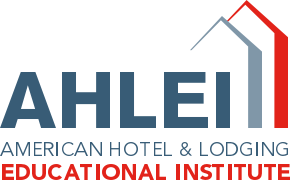May 5
By Elizabeth Johnson
The Importance of Making Your Staff Aware of Their Unconscious Bias
For those of us in the hospitality business, it’s easy for our unconscious biases to allow us to jump to conclusions that can lead to stressful situations. While foodservice companies, for example, often pride themselves on addressing diversity in hiring and serving their customers, the industry harbors a high level of unconscious racial bias, researchers have found.
Foodservice Industry Ranks High in Unconscious Bias
U.S. foodservice employees ranked third as having the highest level of unconscious racial bias in 12 industry sectors in an analysis of Harvard University data by the University of Manchester. About 70.3 percent of foodservice employees surveyed exhibited unconscious bias, the researchers found.
Racial-bias incidents in the hospitality industry have gained more visibility in recent years, with the Washington Post reporting incidents ranging from a racial slur aimed at a hotel guest (the employee was fired) to a white male hotel guest asking two other guests, an African-American software engineer and her daughter, if they had bathed before swimming in the hotel pool. While the man was not a hotel employee, the Washington Post reports that the woman felt the hotel manager should have confronted him sooner about his comments.
Serving Different Backgrounds
In a recent New York Times article discussing racial bias in the hotel industry, Bjorn Hanson, a professor in the Jonathan M. Tisch Center for Hospitality and Tourism at New York University School of Professional Studies, noted that “the incidents did not seem to create some new wave of sensitivity training or messaging.” But he added that hotel-employee training in diversity is common in an industry built upon welcoming people from around the world. “As a person in the guest-facing role, you will experience the opportunity to welcome people of different backgrounds, religions, customs and sexual orientations,” he said. “It’s almost part of the job description to serve different backgrounds.”
When a Guest Displays Unconscious Bias
Of course, unconscious bias can go in the other direction, such as when a guest makes an assumption, based on age, gender, or ethnicity, about who is a manager and who is an employee. Unconscious bias training and discussions should also touch on how employees should react when faced with the results of such unconscious bias on the part of a guest. We are all human, and it’s easy to become hurt or even angry in such a situation. Thinking about, and talking about, possible scenarios ahead of time can help prepare employees to be at their best and keep their emotions at bay during frustrating encounters.
If we aren’t controlling it, we can become a victim of it.
“There is a payoff for people in learning this,” says Winter Park, Florida clinical psychotherapist Josh Magro, LMHC, noting that this is something employees can control and “if we aren’t controlling it, we can become a victim of it.” By talking, training, and planning ahead for possible scenarios that may arise, hospitality employees will feel empowered to give their best to their guests while also maintaining a positive work environment.
Understanding Unconscious Bias in Hospitality provides online training for managers and employees to provide awareness, increase fairness, and help businesses take action to reduce bias in the workplace.




